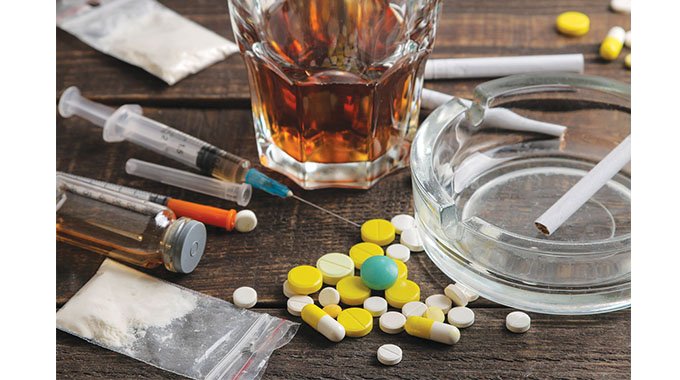
The Sunday News

AN important issue in Zimbabwe is the lack of understanding of mental health and the failure to use community relations to prevent and treat mental health problems.
The medical approach to mental health problems has created a barrier, or a silo approach, where the promotion, prevention, and treatment of mental health are influenced by clinic based instructions and interventions.
There is a need for a perspective change because the medical approach to addressing community mental health and psychological well-being is not only expensive but also insufficient.
Addiction to drugs (substance disorder)
Drug addiction, also known as substance disorder, is a disease that affects a person’s brain and behavior and makes it impossible for them to control whether or not they use drugs or medications, whether they are legal or not. Alcohol and nicotine are examples of substances that are regarded as drugs. When you are addicted, you might keep using the drug even though it is harmful.
A disordered substance use alters regular priorities and desires. It alters regular behavior and makes it difficult to work, attend school, and maintain positive bonds with friends and family.
Drug abuse can begin with the occasional recreational drug use that some people engage in in social settings before developing a drug addiction. For some people, especially those who use opioids, drug addiction starts when they come into contact with a friend or family member who has been prescribed the drug.

Each drug has a different potential for addiction and a different rate of addiction. Drugs that cause addiction more quickly than others include opioid painkillers, which carry a higher risk. The amount of drug you need to get high might increase over time.
Eventually, you might require the drug just to feel good. You might discover that quitting the drug becomes more challenging as your drug use increases. Withdrawal symptoms can make you physically ill and trigger cravings when you try to stop using drugs. These are some potential signs that an adolescent or another member of the family is using drugs.
1. Problems at school or at work include frequent absences, a sudden lack of interest in extracurricular activities or work, or a decline in grades or productivity.
2. Physical health problems such as a lack of motivation and energy, weight loss or gain, or red eyes.
3. Lack of concern for attire, grooming, or appearance results in a neglected appearance.
4. Exaggerated attempts to keep family members out of his or her room, secrecy about where friends go, or abrupt changes in behavior and relationships with family and friends are all examples of behavioral changes.
5. Problems with money include rash requests for cash without a good reason, the discovery of missing or stolen money, or the disappearance of items from your home that may be being sold to fund drug use.
Risk factors
Anyone can develop a drug addiction, regardless of their age, gender, or financial situation.
The likelihood and rate of developing an addiction can be impacted by a number of factors, including: Addiction in the family – Drug addiction is more prevalent in some families and probably stems from a genetic predisposition. You are more likely to become addicted to drugs if a blood relative—such as a parent or sibling—has an alcohol or drug problem.
Drug addiction is more likely to occur if you have a mental health disorder, such as depression, ADHD, or PTSD. Drug use, which can exacerbate painful emotions like anxiety, depression, and loneliness, can become a coping mechanism.
Peer Pressure: Peer pressure, especially among young people, is a significant contributor to drug use and abuse.
Family involvement is lacking. -Addiction risk can be increased by challenging family circumstances, a lack of connection to your parents or siblings, and a lack of parental supervision. Drug use at a young age can alter the way the brain develops and increase the risk of developing a drug addiction.
Using a highly addictive substance. Drugs like cocaine, opioid painkillers, and stimulants may cause addiction to develop more quickly than other drugs. Addiction risk is increased when drugs are smoked or injected. Using so-called “light drugs,” which are drugs that are thought to be less addictive, can set you down the road to drug use and addiction.
Zwelani Dube is a psychologist working for the Ministry of Primary and Secondary Education in Matabeleland South. He is currently styding for a Msc Counselling Psychology with Great Zimbabwe University.



